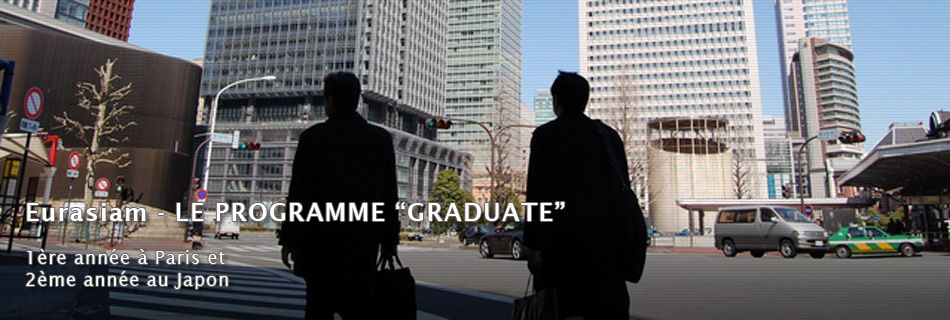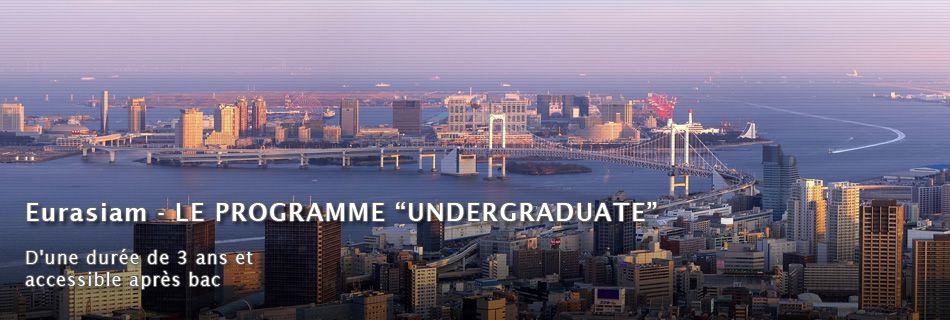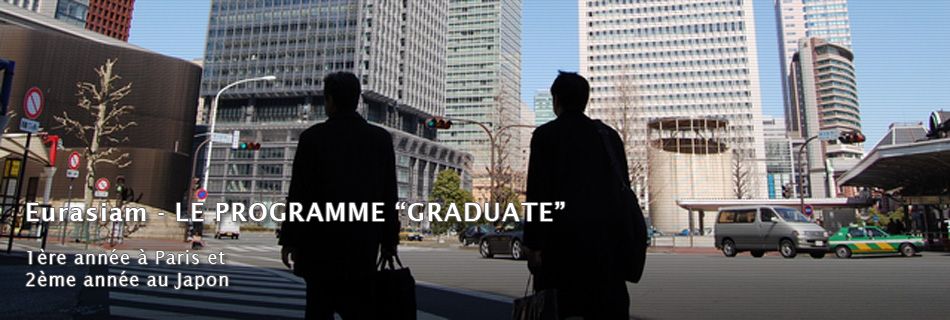Academic Excellence
Rather than a multiplication of classes, Eurasiam favors teaching based on understanding, active integration and personal development. Contrary to general education and lectures, Eurasiam chooses qualitative teaching with the aim of supporting students and providing concrete methods which foster decision making in real-life situations.
Thus, Eurasiam’s programs differ from others because of our innovative and creative teaching methods and, also, our unique educational activities:
International communication
In order for students to have linguistic ease, they follow intensive courses in both English, Chinese and Japanese. In restricted groups (maximum 12 students), approximately 1000 hours of language classes are provided throughout the five year cycle. These courses allow students to master lexical nuances suitable in the commercial world.
Japanese Culture and Civilization
More than 1000 hours of classes are devoted to themes of Asian culture and civilization, which represent nearly half of the course program at Eurasiam. Lessons in the following subjects make up Eurasiam’s program: Civilization (history, sociology, contemporary thought), art (history of art, contemporary innovations and tendencies), economy (economic history, market structure and diversity), management (production, human resources, accounting and tax system), and law (commercial law).
Students will also receive training in classical management as well as aspects of business specific to Japan or China and management of Japanese or Chinese companies.
General Knowledge
Emphasis is put on general knowledge taught in class (history, main streams of thought), methodological teaching (quantitative and qualitative analysis) and specialized seminars.
Eurasiam’s program aims at supporting students in their path to analytical and critical reasoning. With the tools provided at Eurasiam, student will have the skills and keys necessary for public communication, argument structuring and writing of prospective reports.
Case Studies
Favoring analysis, Eurasiam’s programs emphasize case studies as they lead to concretization of strategic scenario, entrepreneurial reasoning and decision making. Thus, our students will be familiar with problem solving strategies used in business today.
While participating in discussions, students can link their fundamental teachings to real-life situations.
Functional Expertise
In groups of six, students must complete a sectorial audit from which will result a definition of commercial and strategic orientations in a given sector. This exercise requires students to put into practice analytical tools they have learned in class and experiment with different conceptual approaches.
Completed within a restricted time frame, this hands-on exercise leads our students to confront knowledge and reality and is a unique manner in which to teach analysis and professional redaction.
Strategic Audit
The objective of strategic audit is to test students’ understanding of tools and concepts through completion of a real survey in a limited time period. Students must be able to create a synthesis between their various knowledge bases and apply methods they have acquired in class in order to formulate, on one hand, strategic scenarios and, on the other hand, complete a presentation of an action plan that meets both environmental and competitive requirements.
Project Management
Obtaining a diploma requires each student to realize a management project. Working in a team setting, during a period of two years, students must lead a project in a chosen sector. Dealing with time and budgetary management, student can experiment, using their abilities, in the conception and management of a professional project. Through this exercise, they are confronted with several issues of professional relationships (financing, juridical requirement, administration of resources, decision making...).
Professional Thesis
Completion of a professional thesis consolidates skills of analysis and synthesis that students will acquire throughout the program. Starting from case studies, students will exhibit their intellectual rigor and demonstrate their ability to execute their approach in an acknowledged conceptual framework. They will be required to use strategic reasoning while considering social, cultural and organizational facts which are specific to the company of sector they are working in.
- Vos débouchés professionnels...
Chef de projet international, responsable des stratégies commerciales, commercial grands comptes, consultant international, responsable marketing, chargé de clientèle, directeur produits et régulation, directeur des ressources humaines




